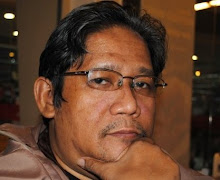
We are marking a long weekend so this is opportune to take a closer look into Senate Resolution # 10, Senator Aquilino Pimentel’s Blueprint for the Federal Republic of the Philippines (FRP).
Resisting any premature comment, here first are the main points:
* The FRP will have a 425-Member unicameral Federal Congress with the legislature headquartered in Bohol
* The declared National Territory encompasses the areas to which the Philippine has pending and unresolved historical claims, meaning the Spratlys and Sabah.
* GMA is mandated to step down in 2010 and is prohibited from seeking election in the new government.
Read on:
* The 63-page annex of SR 10 contains 154 proposed revisions of the Constitution.
* Only two articles, the Bill of Rights and Citizenship, are untouched.
* Federal House of Representatives will have 75 senators and not more than 350 congressmen, or a total of 425 members.
* Rationale:
1. “Whereas, the highly centralized system of government has brought about a spotty development of the nation where preferential treatment has been given to localities whose officials are friendly with or have easy access to an incumbent administration;
2. Whereas, this lopsided arrangement has spawned a host of problems including massive nationwide poverty to runaway insurgencies and rebellions that feed on the societal inequalities in the nation;
3. Whereas, creating eleven States out of the Republic would establish 11 centers of finance and development in the archipelago as follows:
* The 11 Federal States:
1. The State of Northern Luzon;
2. The State of Central Luzon;
3. The State of Southern Tagalog;
4. The State of Bicol;
5. The State of Minparom;
6. The State of Eastern Visayas;
7. The State of Central Visayas;
8. The State of Western Visayas;
9. The State of Northern Mindanao;
10. The State of Southern Mindanao; and
11. The State of BangsaMoro”
* GMA’s Term Limit:
“Unless the incumbent President is removed from office, dies, or resigns, the Incumbent shall serve until 2010, the year her constitutional term of office ends. She is, however, not qualified to run again for office under the Constitution.”
SR10 does not have any proposal to switch from the presidential to the parliamentary form of government.
* Longer term limits:
SR10 extends the term limits for members of the House of Representatives, by setting four years, instead of the present three years, as the length of one term, and allowing a maximum of three consecutive terms.
Under SR10, provincial, city, and municipal officials, and also the governor and vice governor of the proposed new states, would all get up to three terms of four years each, longer than at present. Senators would stay within their present limit of two terms of six years each.
* The State of Bangsamoro:
SR10’s proposed State of Bangsamoro only includes the provinces of Lanao del Sur, Maguindanao, Shariff Kabunsuan, Basilan, Sulu and Tawi-Tawi, with capital at Marawi City. The areas that the Moro Islamic Liberation Front is bargaining for overlap with portions of SR10’s proposed States of Northern Mindanao and Southern Mindanao.
* SR10’s proposed State of Northern Mindanao (capital at Cagayan de Oro City):
Covers the provinces of Zamboanga del Norte, Misamis Occidental, Camiguin, Misamis Oriental, Bukidnon, Agusan del Norte, Dinagat Island, Surigao del Norte, Lanao del Norte, Zamboanga del Sur, Zamboangay Sibugay, and all cities, municipalities and villages therein.
* SR10’s proposed State of Southern Mindanao (capital at Davao City) :
Covers the provinces of Agusan del Sur, Surigao del Sur, Compostela Valley, Davao, Davao Oriental, Davao del Sur, South Cotabato, Sarangani, Cotabato, Sultan Kudarat, and all local entities therein.
SR10 seeks to transfer major portions of national government operations to the Visayas and Mindanao. It would keep Manila as the seat of the Executive Branch, but proposes to transfer the Legislative Branch to Tagbilaran City. It would require the Supreme Court to transfer to Cagayan de Oro City within 10 years.
* The Seat of the unicameral Federal Congress:
The Federal Congress shall hold office and its sessions in the City of Tagbilaran in the State of Central Visayas. Congress may authorize its committees to hold public hearings in aid of legislation or conduct investigations in furtherance of its oversight functions in any part of the Republic.
How the Constituent Assembly will vote:
“NOW, THEREFORE, Be it resolved as it is hereby resolved by the Senate with the House of Representatives concurring, upon a vote of three-fourths of all the Members of both Houses voting separately, to convene Congress into a constituent assembly pursuant to Section 1, paragraph 1 of Article XVll of the Constitution, and revise the Constitution for the purpose of adopting a federal system of government that will create 11 States, constitute Metro-Manila as the Federal Administrative Region, and convert the nation into the Federal Republic of the Philippines.”
Key Revisions Proposed in SR 10:
Revision No. 1.
Section 1. Article 1. National Territory.
The scope of the national territory is hereby revised by adding a new paragraph as follows: The national territory shall likewise include all islands occupied or claimed by the Republic out of historic title, by discovery or other means recognized under international law and its exclusive economic zone as defined by the United Nations Convention on the Law of the Sea.
Revenues and Taxes
(2) All revenues and taxes collected by the local government units or by national government agencies in accordance with the Local Government Code of 1991, Republic Act No. 7160, shall be divided in the following manner: twenty percent (20%) shall accrue to the Federal Government and eighty percent
(80%) to the States. (3) Of the share accruing to the States, thirty percent (30%) shall pertain to the
State concerned and seventy percent (70%) shall be apportioned among the provinces, cities, municipalities and barangay according to the formula stated in the Local Government Code of 1991.
Revision No. 2.
New Section. Article XIV. Utilization of Local Resources.
States may pursue local development in the utilization of mineral, marine and aquatic, forest and other natural resources. They may engage in local and international trade and commerce to attain self sufficiency and progress within their respective territories subject to the limitations imposed by the Constitution.
Revision No. 3.
New Section. Article XIV. Small-Scale Utilization and Development of Natural Resources.
The right of citizens to engage in the small-scale utilization and development of natural resources, as well as cooperative fish farming, with priority to the right of the subsistence fishermen and fish workers in rivers, lakes, bays, and lagoons as provided in the Local Government Code of 1991 shall not be abridged.
(Note: Senators Rodolfo Biazon and Panfilo Lacson have withdrawn their signatures from the resolution.)











